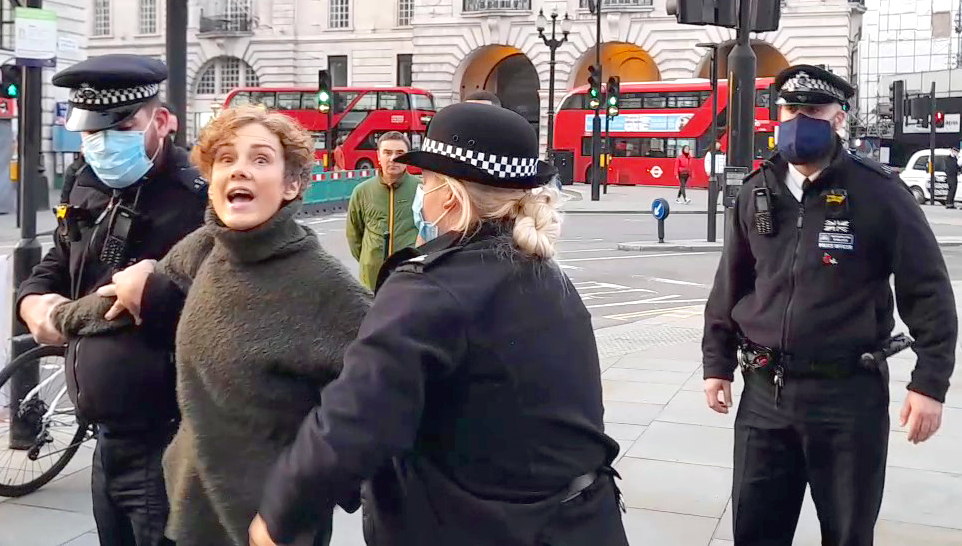
THE POLICE, Crime, Sentencing and Courts Bill, which threatens the fundamental right to protest, was introduced to Parliament yesterday.
The government published some of the features contained in the Bill, which also includes a vicious attack on the Traveller community.
The new Bill gives officers sweeping powers to dictate the start and finish times of any protest, and set ‘maximum noise levels’ and this will be enforced with tougher sentences.
Senior officers will be allowed to impose a wide range of restrictions to prevent demonstrations causing a ‘public nuisance or harming livelihoods’.
The Home Secretary is seeking to make it illegal for protesters to obstruct Parliament, the courts, and the distribution of newspapers or broadcast media in a way that prevents them ‘exercising their democratic duties’.
The Police, Crime, Sentencing and Courts Bill contains a whole range of new police powers, and a section particularly targets the Traveller community, including: ‘New laws will also enable police to better tackle unauthorised encampments.’
Provision is set out for Travellers to face up to three months in jail if they set up unauthorised camps, and those found guilty will also face £2,500 fines.
Police will be given powers to seize vehicles and arrest offenders who refuse to move off private land ‘when asked’.
Targeting the protests against statues of slave owners, the Bill says: ‘Further changes will see tougher penalties for those who vandalise memorials.’
It also contains a move towards ‘fast-track justice’.
‘This includes,’ the government press release states, ‘hundreds of millions being invested in courts to deliver speedier justice and reduce court delays.’
The legislation increases the use of ‘virtual courts’, developed during the height of the pandemic, where the only person physically present is the judge, and ‘New rules to end the need for participants to travel unnecessarily to court by allowing criminal courts to maximise the use of video and audio technology as it develops.’
And the legislation calls for ‘the recruitment of 20,000 police officers and a £4 billion investment in extra prison places.’
The press release states: ‘Maximum penalties will be doubled from 12 months to two years for those who assault police.’